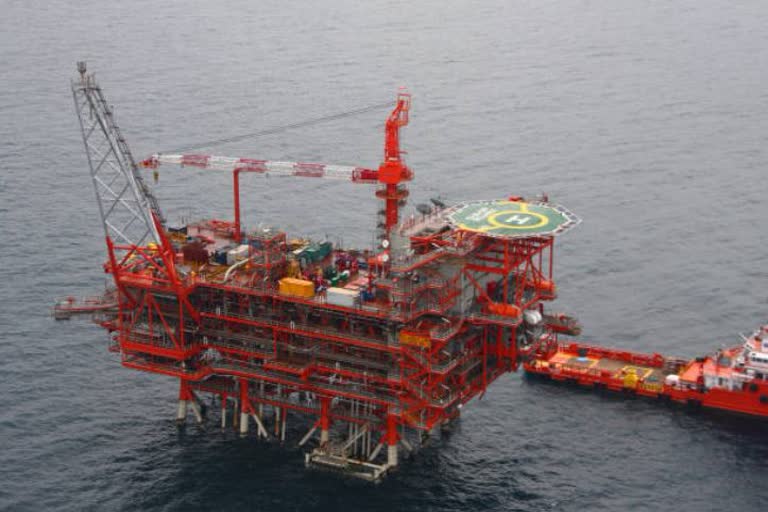New Delhi: D1/D3 gas field, India's first deepwater gas field, ceased to produce on Monday after a USD 1 billion investment and mammoth technological intervention by Reliance Industries and its partner BP Plc of UK extended the life of dwindling fields by four years.
In a late evening statement, Reliance-BP confirmed that it has completed the safe cessation of production in a planned manner from D1/D3 field.
"The RIL-BP joint venture has successfully worked to extend the life of production from the D1/D3 Field which otherwise would have ceased production in 2015 due to issues of reservoir pressure and water ingress. Through innovation and application of 'first-of-their-kind solutions, the field's life was extended for almost five years, to February 2020, maximizing the recovery from the field," it said.
The first-gas from new fields in the block is expected in mid-2020, it added.
D1/D3 field, in Block KG D6 (KG-DWN-98/3) located in the Bay of Bengal, was India's first deepwater gas field to be put on production in April 2009. Output, which peaked at over 61 million standard cubic meters per day in 2010, had been on a decline as sand and water ingress forced wells to shut down one after the other.
While at the peak, it was India's biggest gas field, in the last quarter D1/D3 produced an average of just 1.5 mmscmd.
Sources said only three out of the 18 wells drilled on the fields had remained on production and they too died on Monday.
In perhaps one of its kind intervention in a deepsea field, Reliance-BP through use of a combination of complex techniques kept the wells flowing at Dhirubhai-1 and 3 (D1&D3) fields for the last four years.
Reliance had to date made 19 oil and gas discoveries in the Krishna Godavari basin. Of these, D26 or MA -- the only oil discovery in the block -- was the first field to began production in September 2008. D1 and D3 fields went onstream in April 2009.
Read more:Buyers of Air India, BPCL not to get free hand to shed excess staff: DIPAM secretary
MA field cessation expected by September 2018, the sources said, adding the field at its peak had produced 1,08,418 tonnes of oil in May 2010.
MA also started producing gas from April 2009, just when D1 and D6 went live. It peaked to 8.4 mmscmd in August 2010 before sand and water ingress forced shutting down of well after well. D1 & D3 field too had a peak that year in March when it touched an output of 61.4 mmscmd.
KG-D6 produced about 3 trillion cubic feet equivalent, saving about USD 30 billion in energy imports.
The sources said the field infrastructure would be utilized to bring on stream the next set of fields in the block.
The joint venture has committed USD 5 billion (Rs 35,000 crores) of investments towards monetizing another 3 trillion cubic feet equivalent (about 500 Million Barrels of Oil equivalent) reserves from three projects - R cluster, Satellite Cluster and MJ fields.
These projects will be utilizing most of the existing gas production facilities, they said, adding once commissioned, the three fields will deliver a peak production of 1 billion cubic feet per day, which is about 20 per cent of the current domestic production.
Although there were initial setbacks due to geological surprises, the challenge was to extend life of the field beyond 2015 due to lower reservoir pressure and water ingress, the sources said.
Reliance-BP innovated and applied first of their kind solutions to extend field life and maximize recovery, which included sidetrack/substitute wells, reduction of arrival pressures, and mitigating the effect of water in the network.
This effort extended production up till this month.
The sources said despite best efforts, in recent times the field instability exacerbated due to water and sand ingress leading to a sharp decline in production. Consequently, to preserve the facilities for future use, the field had to be safely shutdown on Monday.
The field set several global benchmarks set in terms of deepwater operational performance - 99.9 per cent uptime, 100 per cent incident-free operations and no security incident.
Reliance is the operator of KG-D6 block with 66.6 per cent stake, while BP has the balance.
(-A PTI Report)



